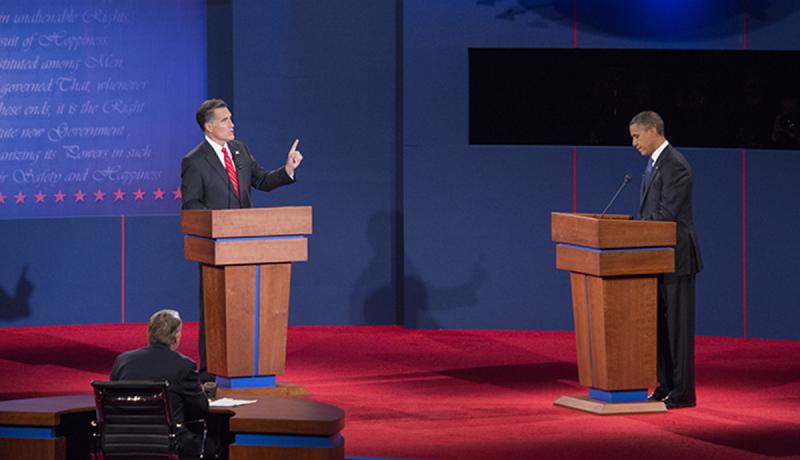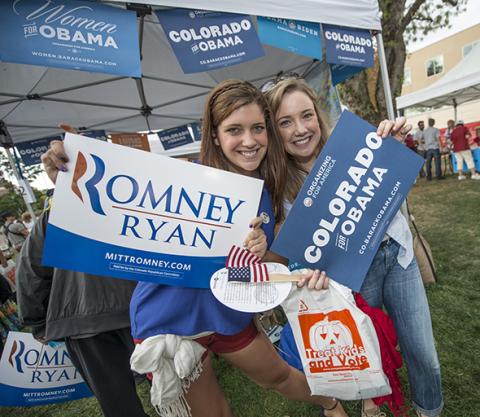In 2012, the University of Denver hosted then-presidential candidates Barack Obama and Mitt Romney for the first debate of the 2012 general election. The University’s DebateFest event drew thousands of attendees to the Denver campus—and the debate itself set a record for the most tweeted-about political event in history.
The excitement wasn’t limited to Twitter; the University’s Facebook page garnered more than one million impressions. The televised debate saw more than 67 million viewers, while more than 3,000 members of the media received credentials for the event. On campus, an estimated 800 students, faculty and staff volunteered at debate-related events, while 300 students were able to attend the debate itself.
Ten years later, the American political landscape looks remarkably different. University of Denver Professor of Political Science and Director of the Center on American Politics Seth Masket remembers the event as an “intellectually vibrant time to be on campus.” In an interview with the DU Newsroom, Masket reflects on the debate and how politics have changed since 2012.
How did DU come to host the debate?
It’s a somewhat mysterious process by which a school is chosen to host a debate, and I certainly don’t have all the details. But the University put in an application with the Commission on Presidential Debates more than a year before the debates, noting its ability to accommodate the various logistical needs associated with hosting a debate. This includes things like security, financial backing, proper electricity, ability to host lots of people and more.
What was the atmosphere on campus like leading up to the debate?
We hosted a speaker series in the months leading up to the debate, bringing scholars, journalists, political leaders and others to campus for some great debates and discussions. It was an intellectually vibrant time to be on campus. The day of the debate was particularly exciting, with events going on all over campus.
What can Americans learn about politics from watching presidential debates?
Debates are an interesting tradition in our political system. While the skills candidates show here aren’t necessarily that vital to serving as president, it does present a chance for voters to see candidates directly interact with each other and think on their feet. Those are particularly rare things in what are otherwise pretty tightly scripted campaigns.
Comparing the general tone of the Obama-Romney debate to the most recent presidential debates, how do you feel that political rhetoric has changed?
Both Barack Obama and Mitt Romney were highly respectful of traditional norms of presidential debates. They were occasionally sharply critical of each other’s policy proposals, but they did not insult each other personally and generally treated each other with respect.
By contrast, in the first debate of 2020, Donald Trump went on a series of long conspiratorial rants about alleged criminal activity by Joe Biden’s son, and Biden finally responded with an exasperated “Will you shut up, man?” The tone is … different.




